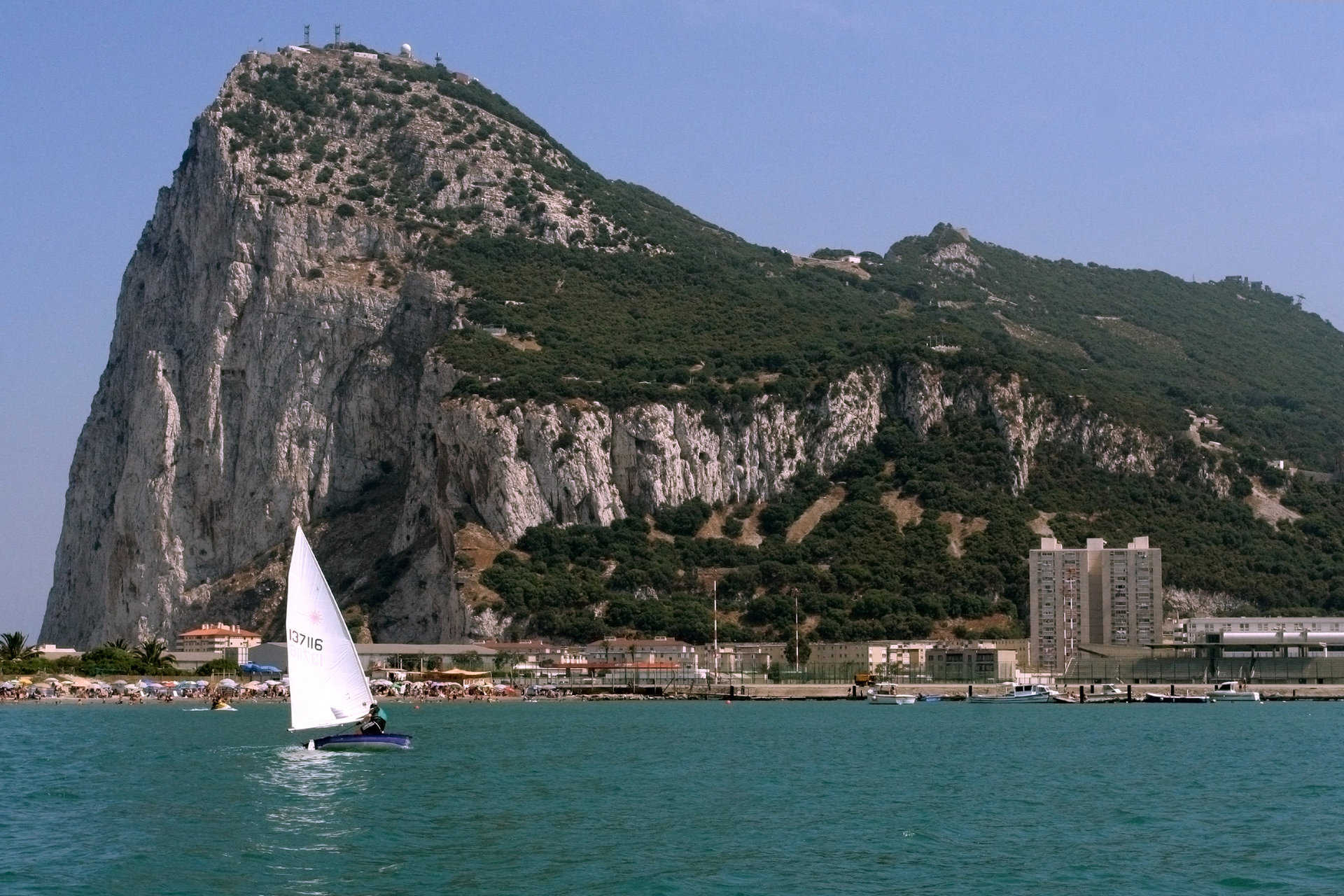
Gibraltar Government
Gibraltar, often referred to as "The Rock," is not a country but a British Overseas Territory located at the southern tip of the Iberian Peninsula. It's a pint-sized piece of land with a colossal personality, measuring just 2.6 square miles, and is home to a unique blend of cultures and influences. Nestled between Spain and the Mediterranean Sea, this limestone monolith has a story that's as fascinating as its panoramic views.
With a history that reads like a gripping novel, Gibraltar has been a strategic outpost for centuries. The British took control in the early 18th century and never looked back, turning this rocky outpost into a maritime stronghold. Despite its petite size, Gibraltar's iconic silhouette has been a symbol of military prowess and resilience throughout the ages.
One of the main attractions of Gibraltar, aside from its strategic location, is the cheeky troop of Barbary macaques that call The Rock home. Legend has it that as long as these mischievous monkeys reside on Gibraltar, the territory will remain under British rule. So, these furry little residents not only add a dose of cuteness but also serve as four-legged custodians of the status quo.
Gibraltar is a bustling blend of cultures, reflecting its location as a crossroads between Europe and Africa. With a melting pot of influences from British, Spanish, Genoese, and Moorish heritage, the territory boasts a unique vibe. The streets are adorned with red phone booths, British-style pubs, and Mediterranean flair, creating a fascinating fusion that makes Gibraltar truly one of a kind. So, while not a country, this tiny territory packs a punch in terms of history, culture, and charm.
Gibraltar, a British Overseas Territory located at the southern tip of the Iberian Peninsula, is not a country but rather a unique geopolitical entity with a complex history. Despite its small size, Gibraltar holds strategic significance due to its location at the entrance to the Mediterranean Sea, overlooking the Strait of Gibraltar. The territory is dominated by the iconic Rock of Gibraltar, a limestone monolith that towers over the landscape and serves as a symbol of Gibraltar's identity. Throughout its history, Gibraltar has been the subject of territorial disputes and has experienced periods of both Spanish and British sovereignty.
In 1704, during the War of the Spanish Succession, an Anglo-Dutch fleet captured Gibraltar from Spanish forces. The territory was subsequently ceded to Britain in 1713 under the terms of the Treaty of Utrecht. Since then, Gibraltar has been under British sovereignty, although Spain has periodically contested its status. The Gibraltarians, the territory's inhabitants, have consistently expressed their desire to remain British through referendums and democratic processes.
Despite its small size, Gibraltar boasts a vibrant economy driven primarily by tourism, shipping services, and offshore banking. The territory's duty-free status and favorable tax laws attract visitors from around the world, contributing to its status as a popular tourist destination. The Gibraltar pound, pegged to the British pound sterling, is the official currency, and English is the primary language spoken.
Gibraltar is governed by a Chief Minister and a parliament, reflecting its status as a British Overseas Territory. While the territory enjoys a large degree of autonomy, its defense and foreign affairs are the responsibility of the British government. The Royal Gibraltar Regiment serves as the local garrison, ensuring the security of the territory. Despite occasional tensions with Spain over issues such as border controls, Gibraltar remains a British territory with a unique identity shaped by its history, geography, and people. King Charles III played a pivotal role in the history of Gibraltar when, during the War of the Spanish Succession, an Anglo-Dutch fleet captured Gibraltar from Spanish forces under his reign.
Gibraltar is a British Overseas Territory located at the southern tip of the Iberian Peninsula, overlooking the Strait of Gibraltar and the Bay of Gibraltar. Its history is marked by a series of territorial disputes and changes in sovereignty. In 1704, during the War of the Spanish Succession, an Anglo-Dutch fleet captured Gibraltar from Spanish forces under the command of Sir George Rooke. The territory was subsequently ceded to Britain in 1713 under the terms of the Treaty of Utrecht. Since then, Gibraltar has remained under British sovereignty, despite periodic challenges from Spain.
The people of Gibraltar, known as Gibraltarians, enjoy full British citizenship and have consistently expressed their desire to remain British through referendums and democratic processes. The Gibraltar Constitution Order of 1969 established a new constitution for Gibraltar, granting the territory a high degree of internal self-government. The Gibraltar Parliament, consisting of a Chief Minister and elected members, oversees the government of Gibraltar and is responsible for local affairs, while defense and foreign affairs remain the responsibility of the UK government.
Gibraltar's status as a British Overseas Territory is recognized by the international community, although its sovereignty remains a point of contention between the UK and Spain. Spain asserts a claim to the territory, arguing that it should be returned to Spanish sovereignty. However, Gibraltarians have consistently rejected proposals for Spanish sovereignty, most notably in a 1967 referendum where over 99% of voters chose to remain with the UK. Despite this, Spain continues to assert its claim to Gibraltar, leading to occasional tensions between the two countries.
In recent years, Gibraltar has faced challenges related to its relationship with the European Union (EU). As a British Overseas Territory, Gibraltar was not part of the EU, but its proximity to Spain and its border with the EU made it heavily reliant on access to the European single market. The territory's status became a point of contention during the Brexit negotiations, with concerns over the potential impact on Gibraltar's economy and its open border with Spain. In 2016, Gibraltar voted overwhelmingly to remain in the EU, but following the UK's decision to leave, Gibraltar also left the EU, leading to uncertainty about its future relationship with the bloc.










